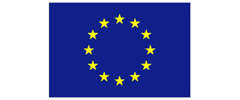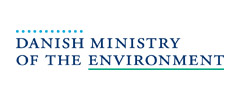Lisbon and Sustainable Development Strategies at Environment Council
WECF International Director writes letter to the EU Member state Environment Ministers
19.03.2006 |Sascha Gabizon
Download letter as a pdf
Dear Minister,
We are writing to you regarding the upcoming Environment Council at which you will be discussing the Sustainable Development and the Lisbon Strategies. Although the European Commission has time and again asserted that the Sustainable Development Strategy and the Lisbon Agenda are mutually reinforcing, we are very much concerned about the direction both strategies will take in the future, following their revision in 2005.
We believe environmental and health protection are pre-conditions to economic growth. As women we are concerned with environmental protection because we understand this ensures the availability of natural resources for future generations. Moreover, environmental protection creates the conditions for a healthy life, which is key to productivity and economic growth. Women are usually the “health managers” of their families. Currently, women bear a large part of the economic and social burden related to environment-linked illnesses in their families, such as asthma, respiratory diseases, and learning disabilities.
Environmental pollution and related health effects incur costs not only to Europe’s health care systems, but also to education and employment systems. If as envisaged under the Lisbon Strategy, 60 % women are supposed to join the work force by 2010, then the environmental burden of disease needs to be reduced. However, a roll-back of environmental protection will pose an obstacle to this and in turn incur costs to European industry and society as a whole.
Therefore, we believe it is dangerous to assume that economic growth can only be achieved at the cost of environmental and social deregulation. Such conventional argumentation ignores the complex inter-linkages between environmental pollution, health protection and employment in modern-day societies.
The recent outcomes of the Commission’s review of the Sustainable Development Strategy (SDS) are alarming. Not only does the review not lead to positive improvements of the strategy, in our view it actually takes a step backwards. Clear targets and time tables, especially in the previously identified priority areas for action are missing. Instead, priority is given to economic development measures, such as “impact assessments” and voluntary business initiatives to achieve the objectives of the strategy.
The impact assessments to be used under the SDS are not defined as in assessing the potential benefits to a sustainable use of resources, eliminating hazardous chemicals or reducing CO2 emissions. Rather such assessments are designed to determine whether a environmental policy poses a potential threat to economic growth. This, however, is in contrast to the goal of sustainable development as such, which is to halt destructive growth patterns such as the over-exploitation of natural resources to ensure today’s resources are available for tomorrow’s generations.
Because the Sustainable Development Strategy is overarching to EU policy making, a weak sustainable development agenda will also weaken the Lisbon agenda. The revamped Lisbon Strategy leaves the social and environmental dimensions marginalized, because it primarily focuses on the Agenda’s economic goals.
Enhancing Europe’s competitiveness will contribute to furthering welfare of citizens in the EU. However, it is dangerous to assume this can only be achieved at the cost of environmental and social deregulation. This would result in a roll-back of European progress made in these areas over the past 20-30 years and in turn incur costs to European industry. A reinforcement of the environmental pillar of the Lisbon Agenda would also contribute to a much needed sense of “ownership” of the European public in achieving the Lisbon goals and would give the Agenda the credibility it needs in order to be accepted and implemented.
We call on you to ensure the following recommendations for a clear improvement of the Sustainable Development Strategy and the reinforcement of the environmental pillar of Lisbon, will be discussed at the Environment Council and taken on board by the European Council:
- Reassert the EU’s leadership in achieving sustainable development.
- Adopt a sustainable development strategy that is ambitious and comprehensive. Adopt clear targets and timetables to guide the implementation of the Strategy
- Invest in eco-innovation through enacting clean production policies (i.e. substitution of hazardous substances) and environmental taxation reform.
- Reinstate the public health priority area as part of the Sustainable Development Strategy - an effective and efficient new chemicals policy (REACH) that closes the data gap on 85% of chemicals on the EU market and phases out the most hazardous chemicals must be an integral part of this.
- Climate change: Fully implement the Kyoto Protocol targets as soon as possible and adopt urgent measures to increase energy efficiency in the EU by using renewable energy sources, and energy saving. Nuclear energy should not be promoted in this context.
- Implement and enforce existing legislation pertaining to environmental and health protection in the EU.
Yours sincerely,
Sascha Gabizon
International Director
Women in Europe for a Common Future

































